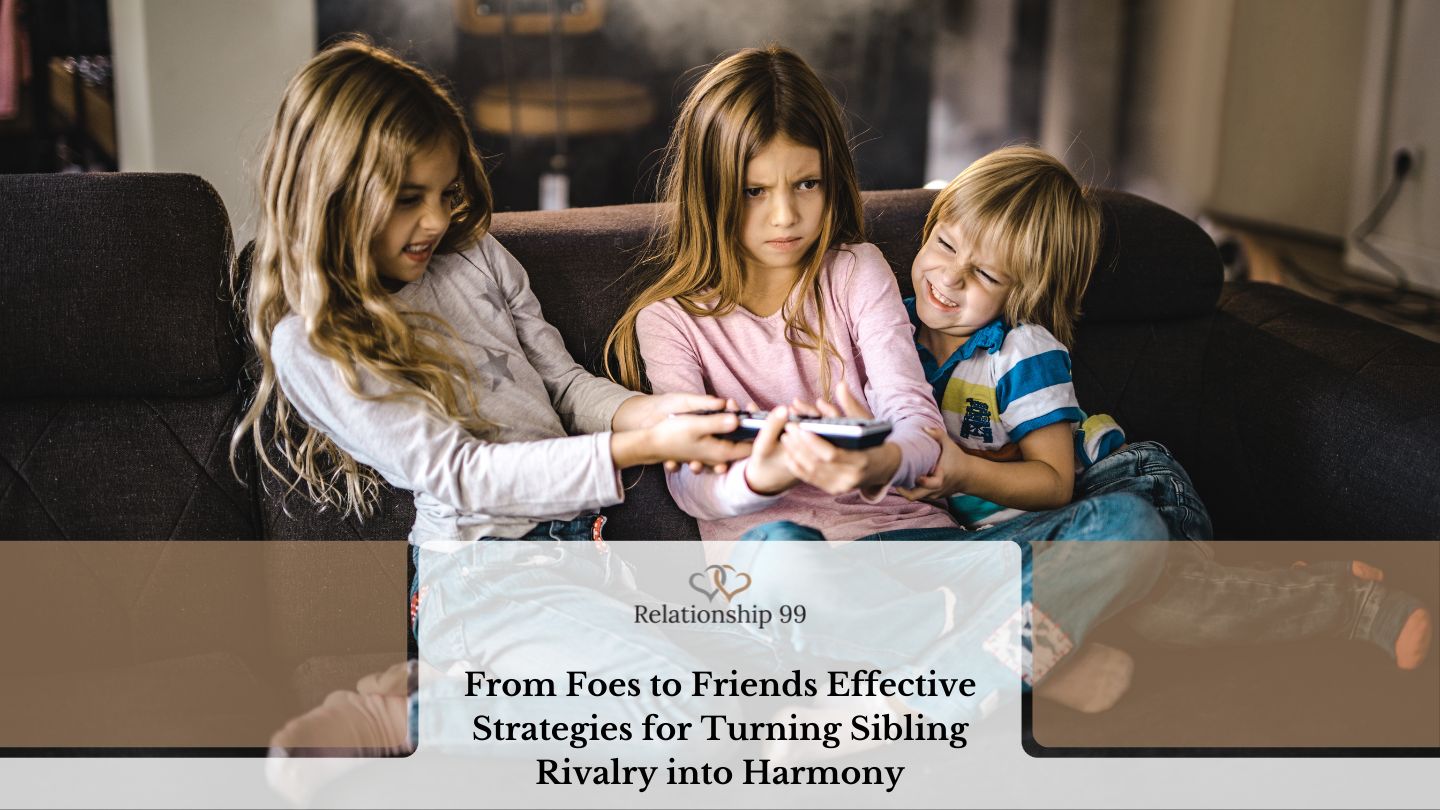As a parent, one of the most challenging aspects of raising children is dealing with sibling rivalry. The constant bickering, competition, and fighting between siblings can be exhausting and frustrating. However, it’s essential to remember that sibling rivalry is a natural part of growing up and learning how to navigate relationships. As parents, we have the power to turn this rivalry into harmony by using some simple strategies. Let’s take a look at how we can turn our kids from foes to friends.
Understanding Sibling Rivalry
You may be wondering why siblings often engage in rivalry and what causes this behavior. Sibling rivalry is a natural part of growing up and is caused by several factors, including:
- Competition for limited resources such as attention, love, and affection from parents.
- Differences in personalities, temperaments, and interests.
- Jealousy or perceived favoritism from parents.
- Age differences and power imbalances.
- Need for identity and autonomy within the family unit.
It’s essential to understand that sibling rivalry is not a sign of a failed parenting approach or inadequate love towards your children. It’s a normal part of growing up, and with proper guidance, it can be turned into an opportunity for siblings to learn valuable life skills.

Communicating Effectively
One of the most critical strategies for turning sibling rivalry into harmony is effective communication. As parents, we must model and teach our children how to communicate effectively with each other. Here are some tips for promoting healthy communication between siblings:
- Encourage active listening: Teach your children to listen actively by paying attention, asking questions, and clarifying misunderstandings.
- Use “I” statements: Encourage your children to express their feelings using “I” statements, such as “I feel angry when you take my toys without asking.”
- Set ground rules for communication: Establish rules for respectful and kind communication between siblings, such as no name-calling or physical aggression.
- Practice conflict resolution skills: Teach your children how to resolve conflicts by taking turns speaking, compromising, and finding win-win solutions.

Avoiding Comparison
As parents, it’s natural to compare our children to each other, but this can often lead to feelings of resentment and competition between siblings. So, how can we avoid comparison and promote harmony between siblings?
- Celebrate individual strengths: Instead of comparing your children’s achievements, celebrate their unique talents and abilities.
- Encourage teamwork: Rather than pitting siblings against each other, encourage them to work together towards a common goal.
- Avoid labeling: Refrain from labeling your children as the “smart one” or the “athletic one.” This can create unnecessary pressure and competition between siblings.
Encouraging Empathy
Empathy is the ability to understand and share someone else’s feelings. By promoting empathy between siblings, we can foster a deeper understanding and connection between them. Here are some ways to encourage empathy:
- Teach perspective-taking: Help your children see things from their siblings’ points of view by asking questions and discussing alternative perspectives.
- Acknowledge feelings: When your children are upset with each other, acknowledge their feelings by saying things like, “I can see that you’re frustrated because your sister took your toy.”
- Encourage acts of kindness: Promote small acts of kindness between siblings, such as sharing toys or helping each other with chores.

Promoting Individuality
While it’s important to promote unity between siblings, it’s equally crucial to recognize and celebrate each child’s individuality. Let’s explore some ways to promote individuality and harmony between siblings:
- Allow for personal space: Give your children their own space, whether it’s a separate room or designated quiet time, to pursue their interests and foster their identity.
- Encourage autonomy: Let your children make decisions for themselves, such as choosing what activities they want to participate in or what clothes they want to wear.
- Celebrate differences: Embrace and celebrate each child’s unique qualities and interests, even if they differ from their siblings.
Setting a Positive Example
As parents, we play a significant role in shaping our children’s behavior. Therefore, it’s crucial to model positive behavior and communication within the family. Here are some ways to set a positive example for your children:
- Show love and affection: Demonstrate your love for all your children equally through physical touch, words of affirmation, and quality time.
- Resolve conflicts peacefully: Instead of yelling or using aggression to solve problems, show your children how to calmly talk through disagreements.
- Celebrate sibling relationships: Talk positively about sibling relationships and highlight the benefits of having a brother or sister.

What to Do When Sibling Rivalry Escalates?
Despite our best efforts, sibling rivalry can sometimes escalate into more severe conflicts. In these situations, it’s essential to intervene and address the issue promptly. We know it’s not always easy, but here are some tips to help you handle sibling rivalry when it escalates:
- Stay calm: As parents, it’s crucial to remain calm and composed when addressing conflicts between your children.
- Address the behavior, not the child: Instead of blaming or shaming a specific child, address the behavior that needs to be changed.
- Avoid taking sides: It’s important to remain neutral and listen to both sides of the story before making any decisions. Taking sides can fuel the rivalry and lead to further conflicts.
- Encourage forgiveness: Help your children understand the importance of forgiveness by encouraging them to apologize and make amends after a conflict has been resolved.

To Wrap Up
Sibling rivalry is a normal part of growing up, and it’s essential to address it proactively to promote harmony between siblings. By promoting effective communication, avoiding comparison, encouraging empathy and individuality, setting a positive example, and addressing conflicts promptly, we can turn sibling rivalry into an opportunity for our children to learn valuable life skills. Remember that every family dynamic is unique, so don’t be afraid to try different strategies and find what works best for your children. With patience, understanding, and love, you can create a strong and harmonious bond between your children that will last a lifetime. So, let’s embrace and celebrate the special relationship between siblings because even though they may squabble at times, they will always be each other’s best friends.

